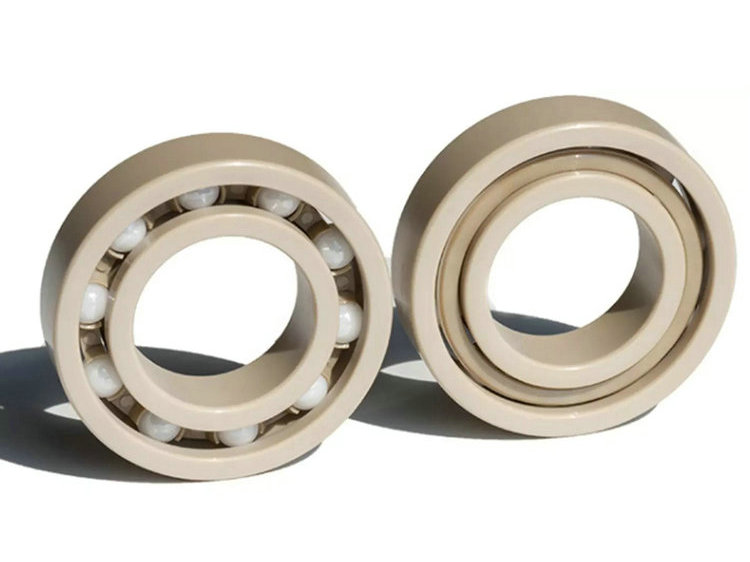
Comparison of PEEK to Traditional Materials in Automotive Bearings
PEEK (polyetheretherketone) has emerged as a highly effective alternative to traditional bearing materials such as metals (e.g., brass, aluminum) and other polymers (e.g., nylon). This comparison highlights the distinct advantages of PEEK in automotive applications.
Key Comparisons
| Property | PEEK | Traditional Materials |
| Temperature Resistance | Up to 200°C (662°F) | Varies; metals can withstand high temps but may deform under extreme conditions |
| Friction Coefficient | Low; can be further reduced with fillers | Generally higher, requiring lubrication |
| Self-Lubrication | Capable with additives (e.g., PTFE) | Typically requires external lubrication |
| Wear Resistance | Excellent, especially when reinforced | Good, but can wear out faster in harsh conditions |
| Manufacturing Flexibility | Compatible with CNC machining and injection molding | Limited to machining for metals; more complex for polymers |
| Weight | Lightweight, high strength-to-weight ratio | Heavier (e.g., metal bearings) |
| Cost Efficiency | Reduces maintenance and lubricant costs | Higher maintenance costs due to lubrication needs |
Advantages of PEEK
Lightweight and Strong: PEEK's high strength-to-weight ratio allows for lighter components that reduce overall vehicle weight, enhancing fuel efficiency and performance.
High Temperature and Chemical Resistance: PEEK can endure extreme temperatures and is resistant to various chemicals, making it suitable for demanding automotive environments, such as engine compartments and transmission systems.
Self-Lubricating Properties: PEEK can be formulated to be self-lubricating by incorporating materials like PTFE, reducing the need for constant lubrication and maintenance compared to traditional metal bearings.
Durability and Longevity: The material's resistance to wear and thermal expansion contributes to a longer service life, particularly in high-performance applications where even minor changes in bearing geometry can lead to failure.
Manufacturing Efficiency: PEEK can be produced using advanced manufacturing techniques, allowing for the creation of complex shapes and precision components that are difficult to achieve with traditional materials.
Applications in Automotive Bearings
Engine Components: PEEK bearings are utilized in engine applications where they can endure high temperatures and pressures without losing structural integrity. This leads to improved engine performance and longevity.
Transmission Systems: In transmissions, PEEK's low friction properties help enhance efficiency and reduce energy losses, contributing to better fuel economy.
Suspension Systems: PEEK is also employed in suspension components like shock absorbers. Its ability to withstand dynamic loads while maintaining performance under varying conditions enhances ride quality and vehicle handling.
Electric Vehicles (EVs): With the rise of electric vehicles, PEEK bearings are gaining traction due to their ability to handle the high-speed and high-torque demands of electric drivetrains, making them essential for future automotive innovations.
Conclusion
The use of PEEK in automotive bearings offers significant advantages over traditional materials, particularly in terms of weight reduction, temperature resilience, self-lubrication, and manufacturing flexibility. These properties make PEEK an increasingly popular choice for modern automotive applications, especially as the industry moves towards more efficient and durable solutions.